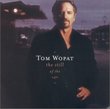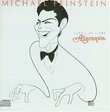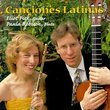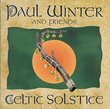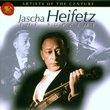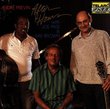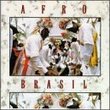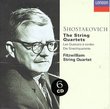| All Artists: Horowitz, Scarlatti Title: Celebrated Scarlatti Recordings Members Wishing: 0 Total Copies: 0 Label: Sony Original Release Date: 1/1/1994 Re-Release Date: 6/14/1994 Genre: Classical Styles: Forms & Genres, Sonatas, Historical Periods, Baroque (c.1600-1750), Modern, 20th, & 21st Century Number of Discs: 1 SwapaCD Credits: 1 UPC: 074645346021 |
Search - Horowitz, Scarlatti :: Celebrated Scarlatti Recordings
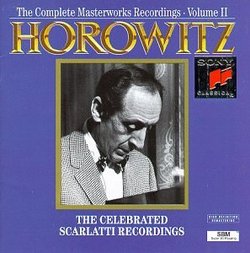 | Horowitz, Scarlatti Celebrated Scarlatti Recordings Genre: Classical
Horowitz played Scarlatti when few even knew of the composer's existence. His championship of these infectious works dismayed purists for whom harpsichord works on the concert grand is heresy. But Horowitz makes these wry,... more » |
Larger Image |
CD DetailsSynopsis
Amazon.com essential recording Horowitz played Scarlatti when few even knew of the composer's existence. His championship of these infectious works dismayed purists for whom harpsichord works on the concert grand is heresy. But Horowitz makes these wry, witty pieces his own. His sheer delight is amply seen in the quicksilver D-major Sonata, L. 424, and his lovingly caressed A-minor Sonata, L. 241. Throughout, Horowitz keeps within a strict classical frame while performing wonders of articulation and tonal color. Great pianism as well as an example of his adventurous musical curiosity. --Dan Davis Similarly Requested CDs
|
CD ReviewsMarvellous miniatures Craig Matteson | 04/17/1999 (5 out of 5 stars) "After collecting Horowitz for years, this is probably my favorite album. None of the pyrotechnics of the Carmen Variations here, just a watchmaker's precision alloyed with a painterly eye. These colourful pieces are a real highlights selection from the ~550 keyboard sonatas that Scarlatti wrote." Horowitz was a revolutionary in his Scarlatti interpretation Craig Matteson | Ann Arbor, MI | 08/07/2002 (5 out of 5 stars) "Horowitz caused sensation and consternation throughout his glorious and mercurial career. He recording Clementi sonatas when no one was even remembering them and made a compelling case for keeping some of them in the repertoire.He did even more for Domenico Scarlatti. Scarlatti was a favorite in the harpsichord revivalist crowd, but when Horowitz showed how it could sound on the piano people were polarized. Purists hated it and said it would be like re-painting the Mona Lisa in day-glo paints. Others loved and raved about the music and felt it was perfectly natural music for the piano.While there are certainly some who hold on to the orthodox faith of Scarlatti on any keyboard but the piano, the majority know their Scarlatti from pianists such as Horowitz and nowadays MANY MANY others.But there is still, for me, something special about the way Horowitz plays this music. I was fortunate enough to hear him play three times in live performance. The one thing that struck me most about his playing was how incredibly soft he could play and still fill the hall. And he had more gradations of tone than any other of the hundreds of pianists I have ever heard. By a long shot. This tonal subtlety is heard in these recordings. Compare his Scarlatti with anyone else's and you will have to admit there is more color in Horowitz's interpretation than in any other. You may not like it, but it is there. I love it. And so do most others who hear it.You owe it to yourself to have this disk in your collection." Tasty Gems grandpiano_57 | Burlington, CT USA | 07/23/2000 (5 out of 5 stars) "Domenico Scarlatti (1685-1757) wrote some 550 sonata's for harpsichord. These pieces were very advanced harmonically and rhythmically and are truly ground breaking for their time. In these legendary recordings, Horowitz reveals the wonderful musicality found in these works, playing with a pure sense of discovery, taste and profound finesse. The charming performances on this recording were responsible for introducing Scarlatti's creative works to a public that had long since forgotten his music. While written for the harpsichord, these wonderful keyboard pieces, when played with the refined taste displayed here, transform beautifully into piano miniatures. Horowitz never falters in his taste and attack on this solid sounding set. With 19 sonata's and 72 minutes of well conceived music, this is a purchase you will enjoy."
|

 Track Listings (18) - Disc #1
Track Listings (18) - Disc #1